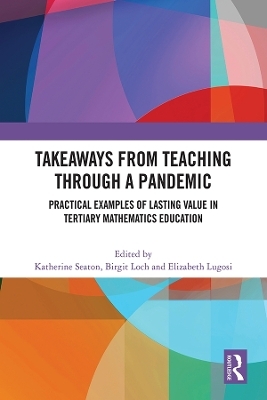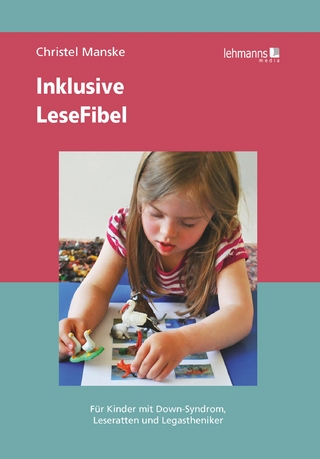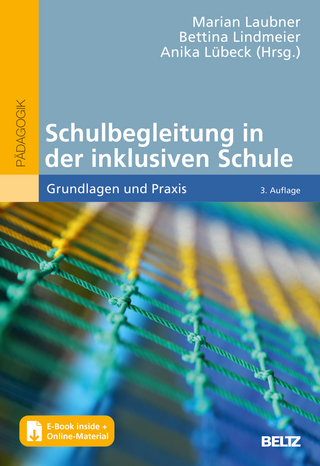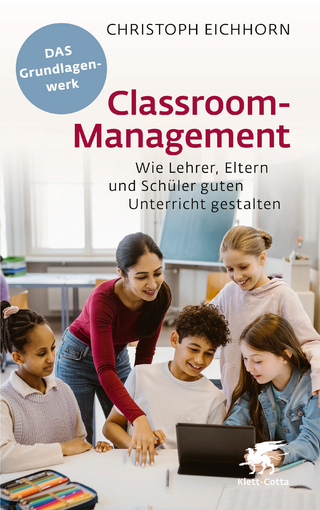
Takeaways from Teaching through a Pandemic
Routledge (Verlag)
978-1-032-62747-2 (ISBN)
The first theme explored is the utilization of the affordances of communications technology and mathematical software and online tools, to create learning resources and activities for virtual classrooms. The second theme is the design of sound assessment alternatives, together with the associated issue of maintaining academic integrity, in disciplines accustomed to established question styles and face-to-face exams. Finally, a range of activities to encourage engagement and support learning and teaching, both online and as campuses re-opened, is described.
Due to their ongoing relevance and benefits for tertiary mathematics education, be that of pre-service teachers, engineers or mathematics majors, the examples found in these 20 practical chapters are ‘takeaways’ or ‘keepers’. This book was originally published as a special issue of International Journal of Mathematical Education in Science and Technology.
Katherine Seaton (FAustMS, SFHEA) is currently Adjunct Associate Professor at La Trobe University, Australia, following twenty-seven years of mathematics teaching, outreach, service and research. Her publications range from statistical physics to tertiary mathematics assessment and academic integrity, and mathematical fibre art. Birgit Loch (FAustMS, PFHEA) is currently Dean of the Faculty of Science, Agriculture, Business and Law at the University of New England, Australia. With a background in computational mathematics, her research expertise is in innovation and educational technologies in tertiary STEM education. Elizabeth Lugosi is Professor at the Mathematics, Statistics, and Data Science Department of Montgomery College. She is passionate about using engagement strategies to help students succeed in mathematics courses using collaborative, active learning and evidence-based instructional practices to enhance students’ problem-solving and to build community.
Introduction to takeaways from teaching through a global pandemic: practical examples of lasting value in tertiary mathematics education 1. Any advice? Lessons learned by mathematics lecturers for emergency remote teaching during the COVID-19 pandemic 2. Creative approaches to teaching mathematics education with online tools during COVID-19 3. Your online textbook is ready: a shareable, interactive online textbook in response to COVID-19 lockdowns 4. Stop-motion LEGO® animations for learning linear algebra 5. Crowdsourcing solutions in the online mathematics classroom 6. Leveraging the power of Google Apps to support active learning in a synchronous online environment 7. Flexible, student-centred remote learning for programming skills development 8. Don’t throw the student out with the bathwater: online assessment strategies your class won’t hate 9. Forced to improve: open book and open internet assessment in vector calculus 10. No exam: assessment of third-year engineering students on the basis of self-generated statistics cases 11. Utilizing discussion boards for test questions: opportunities for students’ mathematical creativity and uniqueness 12. Mathematics assessment integrity during lockdown: experiences in running online un-invigilated exams 13. Mathematics and academic integrity: institutional support at a Canadian college 14. Individualized summative assessments as used during COVID-19 15. Learning at a distance: can at-home activities measure up? 16. Peer-Assisted Learning in a pandemic 17. Checkpoints for online mathematics students with learning challenges 18. Crafting connections in post-COVID classrooms: learning university mathematics through craft 19. The pandemic as a catalyst for rethinking active learning practices in technology intensive instructional environments 20. The unexpected consequences of replacing corridor chats with an online community of practice
| Erscheinungsdatum | 03.02.2024 |
|---|---|
| Verlagsort | London |
| Sprache | englisch |
| Maße | 174 x 246 mm |
| Gewicht | 530 g |
| Themenwelt | Mathematik / Informatik ► Mathematik |
| Sozialwissenschaften ► Pädagogik ► Schulpädagogik / Grundschule | |
| Sozialwissenschaften ► Pädagogik ► Schulpädagogik / Sekundarstufe I+II | |
| ISBN-10 | 1-032-62747-6 / 1032627476 |
| ISBN-13 | 978-1-032-62747-2 / 9781032627472 |
| Zustand | Neuware |
| Informationen gemäß Produktsicherheitsverordnung (GPSR) | |
| Haben Sie eine Frage zum Produkt? |
aus dem Bereich


